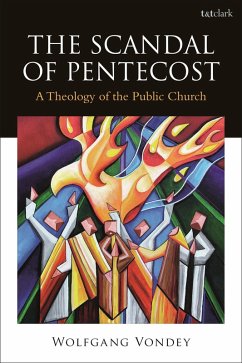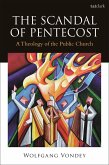Through a systematic analysis of the conflicts emerging when the public church encounters the public world, The Scandal of Pentecost argues that the public advent of the church stands in continuity with the public scandal of the incarnate and crucified Christ.
The book traces the contours of this scandal in the confrontation of the dominant ruling hermeneutic of authority with a Christian hermeneutic of resistance. This highlights the brokenness of the human condition manifested by the church in the drunkenness of the disciples, the speaking in other tongues, the baptism with the Spirit, the empowerment of the flesh, and its public witness to a scandalized world.
The effects of the scandal transform both the disciples' individual and communal witness and their public recognition as the church. Through the lens of a symbolic hermeneutic, the public witness of the church at Pentecost reveals a Christian scandal of anthropological proportions: with the outpouring of the Spirit on all flesh the church emerges as the symbol of humanity.
The book traces the contours of this scandal in the confrontation of the dominant ruling hermeneutic of authority with a Christian hermeneutic of resistance. This highlights the brokenness of the human condition manifested by the church in the drunkenness of the disciples, the speaking in other tongues, the baptism with the Spirit, the empowerment of the flesh, and its public witness to a scandalized world.
The effects of the scandal transform both the disciples' individual and communal witness and their public recognition as the church. Through the lens of a symbolic hermeneutic, the public witness of the church at Pentecost reveals a Christian scandal of anthropological proportions: with the outpouring of the Spirit on all flesh the church emerges as the symbol of humanity.









